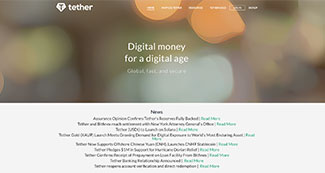
With the US midterms happening today, the editorial team at Crypto Lists are looking at why they’ve become an increasing part of the online chatter around cryptocurrencies.
Unless you’ve been living under a rock, you can’t help but notice the political climate heats up in the run-up to the midterm elections. You may not be able to ignore the constant political commercials, whether watching T.V, listening to the radio, or browsing the internet, even if your mailbox isn’t flooded with innumerable fliers about the various candidates.
Go directly to
Crypto PAC’s introduction to the political scene
The Crypto Freedom PAC’s introduction to the political scene marked the beginning of the group’s efforts to inject its own unique brand of politics into the ongoing discourse. Specifically, it has worked to advance crypto-friendly politicians who can safeguard their ideal crypto future.
Reports from Bitcoin Magazine suggest that the White House is actively working on expanding cryptocurrency regulation. In particular, the White House has produced a study on the environmental effects of Bitcoin (BTC) mining and has advocated for the prohibition of the proof-of-work method, a central tenet of the Bitcoin economy. The Crypto Freedom PAC actively engages in the political process to ensure that crypto-friendly candidates are elected to office. If the PAC is successful, the Bitcoin market may be better able to withstand the proposed rules.
Theoretically, crypto-friendly senators in government would benefit your investment portfolio. After all, legislation is subject to revision. The long-term prospects of cryptocurrencies as an investment option may be bolstered if someone on Capitol Hill is interested in shielding the cryptocurrency markets from intruding legislation.
Supply: 76,310,896,640 / 32,297,366,522
Release date: June 10, 2014
Description: Buy Tether, the biggest stablecoin in the world and pegged to the US dollar.
Risk warning: Trading, buying or selling crypto currencies is extremely risky and not for everyone. Do not risk money that you could not afford to loose.
Platforms backing pro-crypto candidates
Pro-crypto trade organization, the Crypto Council for Innovation, which represents Fidelity and Gemini, reported statistics last Wednesday reportedly showing that 1 in 7 voters “hold crypto and declare that they’re open to voting for pro-crypto candidates.” The cryptocurrency exchange Coinbase, which has over 100 million users worldwide, has started its voter registration effort and is grading candidates based on their openness to crypto concerns. Meanwhile, an increasing number of candidates for public office are taking Bitcoin payments to highlight their positivity toward the crypto space.
All of this is done with the hope that one day a sizable proportion of people will cast ballots for and donate to candidates who favor the growth and use of cryptocurrency. To be clear, it’s still early on. People behind the massive effort to register and turn out crypto voters told Recode that the approaching elections are only a dry run but that the ultimate objective is to create a voting bloc that is ready to vote in the direction of the crypto business.
Voters may opt for pro-crypto candidates
Numerous topics, such as abortion, gun control, free and fair elections, the economy (including crypto), and so on, have pushed many people to the polls, which has put the future majority power in the House of Representatives and the Senate in threat. The results of a 2,029-person poll conducted by The Harris Poll between October 6 and 11 indicate that 38% of prospective midterm voters will consider a candidate’s views on cryptocurrency regulation when casting their ballot. With 87% of Democrats and 76% of Republicans wanting clarification from the U.S. government, the study conducted by Grayscale Investments reveals that cryptocurrency regulation is a bipartisan concern.
Numerous candidates for both the Democratic and Republican parties have expressed both support for and opposition to cryptocurrencies, and there are representatives of both parties in the Congressional Blockchain Caucus. Morning Consult reported late last year that almost equal numbers of Democrats and Republicans prefer fewer controls on crypto. Pro-cryptocurrency groups have conducted similar polls with similar results.
According to a recent Morning Consult study commissioned by Haun Ventures, “Web3 voters” in New Hampshire, Nevada, Ohio, and Pennsylvania tilt slightly Democratic. Web3 is a phrase used by some to refer to technology such as cryptocurrency and the blockchain.
Wrapping it up
If voters vote for pro-crypto candidates and secure the seats, the tough crypto regulations will surely be friendlier. Better regulations mean a potential growth of crypto prices, making digital currencies profitable investments for those interested.





 Grab your chance to win up to 30,000 USDT on Jackpot Village
Grab your chance to win up to 30,000 USDT on Jackpot Village Play anonymously on one of the number one USDT casinos
Play anonymously on one of the number one USDT casinos Crypto Lists reach 450 USDT casinos reviewed
Crypto Lists reach 450 USDT casinos reviewed Deposit USDT on four different networks at Bull Run Bets!
Deposit USDT on four different networks at Bull Run Bets! 50 USDT free bet on Cryptorino casino - not to be missed!
50 USDT free bet on Cryptorino casino - not to be missed!

























